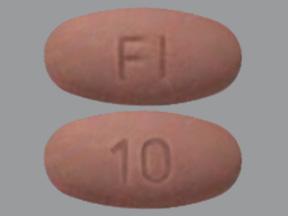Kerendia and Alcohol/Food Interactions
There is 1 alcohol/food/lifestyle interaction with Kerendia (finerenone).
Finerenone Food/Lifestyle
Major Food Interaction
Finerenone may be taken with or without food. However, you should avoid grapefruit and grapefruit juice during treatment with this medication. Grapefruit juice may significantly increase the blood levels and effects of finerenone. This can increase the risk of developing hyperkalemia, or high levels of potassium in the blood, which in severe cases can lead to kidney failure, muscle paralysis, irregular heart rhythm, and cardiac arrest. You may be more likely to develop hyperkalemia during treatment with finerenone if you are elderly, dehydrated, or have kidney disease, diabetes, or advanced heart failure. You should also avoid potassium-containing salt substitutes or over-the-counter potassium supplements during treatment with finerenone unless otherwise directed by your doctor. Seek medical attention if you experience nausea, vomiting, weakness, confusion, tingling of the hands and feet, feelings of heaviness in the legs, a weak pulse, or a slow or irregular heartbeat, as these may be symptoms of hyperkalemia. It is important to tell your doctor about all other medications you use, including vitamins and herbs. Do not stop using any medications without first talking to your doctor.
Switch to professional interaction data
Kerendia drug interactions
There are 334 drug interactions with Kerendia (finerenone).
Kerendia disease interactions
There are 3 disease interactions with Kerendia (finerenone) which include:
More about Kerendia (finerenone)
- Kerendia consumer information
- Check interactions
- Compare alternatives
- Pricing & coupons
- Reviews (3)
- Drug images
- Side effects
- Dosage information
- During pregnancy
- FDA approval history
- Drug class: aldosterone receptor antagonists
- Breastfeeding
- En español
Related treatment guides
Drug Interaction Classification
| Highly clinically significant. Avoid combinations; the risk of the interaction outweighs the benefit. | |
| Moderately clinically significant. Usually avoid combinations; use it only under special circumstances. | |
| Minimally clinically significant. Minimize risk; assess risk and consider an alternative drug, take steps to circumvent the interaction risk and/or institute a monitoring plan. | |
| No interaction information available. |
See also:
Further information
Always consult your healthcare provider to ensure the information displayed on this page applies to your personal circumstances.


